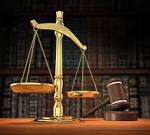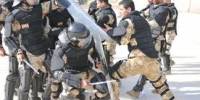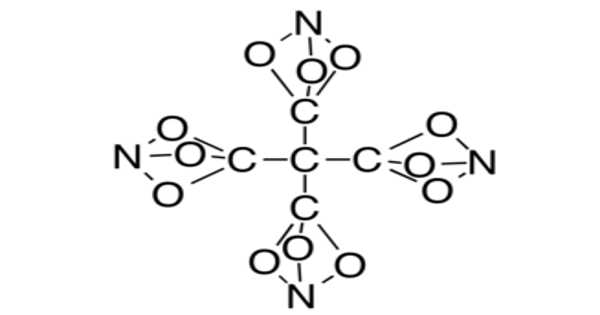Introduction
Law of civil procedure consists of the rules by which courts conduct civil trials. “Civil trials” concern the judicial resolution of claims by one individual or group against another and are to be distinguished from “criminal trials,” in which the state prosecutes an individual for violation of criminal law. Civil procedure is the body of law that sets out the rules and standards that courts follow when adjudicating civil lawsuits (as opposed to procedures in criminal law matters).
#. General concept of Procedural Law and Substantive Law
LAWS can be divided into two groups. Following these—
● Substantive Law.
● Procedural or Adjective Law.
►Discuss about Substantive Law and Procedural Law —
● Substantive Law: The function of substantive Law is to define, create or confer substantive legal rights or legal status or to impose and define the nature and extent of legal duties.
Example: i). Penal Law;
ii). Law of Contract;
iii). Law of Property; etc.
● Procedural or Adjective Law: The Function of procedural law is to provide the machinery or the manner in which the legal rights or status and legal duties may be enforced or recognized by a court of law or other recognized or properly constituted tribunal.
Example: i). Civil Procedure Code;
ii). Criminal Procedure Code; etc.
Notice: The distinction between the substantive and procedural law is not an always easy and clear-cut. The same law may be procedural as well as substantive.
Example: Evidence Act; etc.
Law of Civil Procedure in Bangladesh
#. Historical background of the Law of Civil Procedure in Bangladesh
Before 1859, there was no uniform Code of Civil Procedure. There were different systems of civil procedure in different parts of the country. The first uniform Code of Civil procedure was enacted in 1859. But that Code was also not made applicable to the Supreme Courts in the Presidency Towns and to the Presidency Small
Cause Courts. Some amendments were made therein and the Code was applied to the whole of British India, but there were many defects in it, and therefore, a new Code was enacted in 1887. Again, another Code was enacted in 1882, which was also amended from time to time. In 1908, the present Code of Civil Procedure was enacted. It was amended by two important Amendment Acts of 1951 and 1956.
#. Structure / Formation of the Code of Civil Procedure, 1908
* Preamble: An Act to consolidate and amend the laws relating to the Procedure of the Courts of Civil Judicature.
WHEREAS it is expedient to consolidate and amend the laws relating to the procedure of the Courts of Civil Judicature
* 155 Sections: The Code of Civil Procedure, 1908 has 155 Sections.
* 50 Orders and Rules: The Code of Civil Procedure, 1908 has 50 Orders and Rules.
#. Law / Act / Code relating to civil matter
a). The Code of Civil Procedure 1908
b). The Limitation Act
c). The Civil Courts Acts 1987
d). The Civil Rules and Regulations 1887
e). The Court Fees Act 1870
f). The Suit Valuation Act 1887
g). Relevant Law (Civil Nature)
Notice: In the term of Civil Case Practice this 7 subject must be essential.
#. Short title, Commencement and Extent of the Code of Civil Procedure
Code, 1908:
{Section 1}
1). This Act may be cited as the Code of Civil Procedure, 1908.
2). It shall come into force on the first day of January, 1909.
3). It extends to the whole of Bangladesh.
#. Definitions:
{Section 2}
In this Act, unless there is anything repugnant in the subject or context,—
1). “Code” includes rules:
2). “Decree” means the formal expression of an adjudication which, so far as regards the Court expressing it, conclusively determines the rights of the parties with regard to all or any of the matters in controversy in the suit and may be either preliminary or final. It shall be deemed to include the rejection of a plaint and the determination of any question within [* * *] section 144, but shall not include—
a). any adjudication from which an appeal lies as an appeal from an order
b). any order of dismissal for default.
Explanation:- A decree is preliminary when further proceedings have to be taken before the suit can be completely disposed of. It is final when such adjudication completely disposes of the suit. It may be partly preliminary and partly final:
3). “Decree-holder” means any person in whose a decree has been passed or an order capable of execution has been made:
4). “District” means the local limits of the jurisdiction of a principal Civil Court of original jurisdiction ( hereinafter called a “District Court”), and includes the local limits of the ordinary original civil jurisdiction of the High Court Division:
5). “Foreign court” means a court situate beyond the limits of Bangladesh which has no authority in Bangladesh and is not established or continued by the government:
6). “Foreign Judgment” means the judgment of a foreign court.
7). “Government Pleader” includes any officer appointed by the Government to perform all or any of the functions expressly imposed by the Code on the Government Pleader and also any pleader acting under the directions of the Government Pleader:
8). “Judge” means the presiding officer of a Civil Court:
9). “Judgment” means the statement given by the judge of the grounds of a decree or order:
10). “Judgment-debtor” means any person against whom a decree has been passed or an order capable or execution has been made.
11). “Legal Representative” means a person who is law represents the estate of a deceased person, and includes any person who inter meddles with the estate of the deceased and where a party sues or is surd in a representative character the person on whom the estate devolves on the death of the party so suing or suit:
12). “Manse Profits” of property means those profits which the person in wrongful possession of such property actually received or might with ordinary diligence have received there from, together with interest on such profits shall not include
Profits due to improvements made by the person in wrongful possession:
13). “Moveable Property” includes growing crops.
14). “Order” means the formal expression of any decision of a Civil Court which not a decree.
15). “Pleader” means any person entitled to appear and plead for another in court [* * *]:
16). “Prescribed” means prescribed by rules:
17). “Public Officer” means a person falling under any of the following descriptions, namely:-
a). every Judge;
b). every member of the Civil Service of [ The Republic]
c). every commissioned or gazetted officer in the military, naval or air forces of Bangladesh while in the service of the [Republic];
d). every officer of a Court of Justice whose duty it is, as such officer, to investigate or report on any matter of law or fact, or to make, authenticate or keep any document, or to take charge or dispose of any property, or to execute any judicial process, or to administer any or to interpret, or to preserve order, in the court, and every person especially authorized by a Court of Justice to perform any of such Justice;
e). every person who holds on any office by virtue of which he is empowered to place or keep any person in confinement;
f). every officer of the Government whose duty it is, as such officer, to prevent offences, to give information of offences, to bring offenders to justice, or to protect the public health, safety or convenience.
g). every officer whose duty it is, as such officer, to take, receive, keep or expend any property on behalf of the Government, or to make any survey, assessment or Contract on behalf of the Government, or to execute any revenue-process, or to investigate, or to report on, any matter affecting the pecuniary interest of the Government, or to make, authenticate or keep any document relating to the pecuniary interests of theGovernment, or to prevent the infraction of any law for the protection of the pecuniary interests of the Government.
h). every officer in the service or pay of the [Republic], or remunerated by fees or commission for the performance of any public duty:
18). “Rules” means rules and forms contained in the First Schedule or made under section 122 or section 125:
19). “Share in a corporation” shall be deemed to include stock, Debenture stock, debentures or bonds: and
20). “Signed” save in the case of a judgment or decree, includes stamped.
















